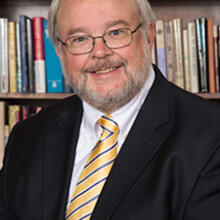President Obama will meet Pope Francis on March 27. The first African-American president will meet the first Latin American pope. Barack Obama and Jorge Bergoglio were outsiders, a new senator and an old Jesuit with, it appeared, little chance that they would lead the most powerful nation and religious institution on earth. Both were elected as reformers, committed to change in Washington and the Vatican. The president was Time’s person of the year and a Nobel Prize-winner, but that seems long ago. The pope is riding a wave of enthusiasm onto the cover of not only Time, but Rolling Stone as well.
Pope Francis is just entering his second year. President Obama is in his sixth year, and there is growing discussion about his successor. The pope has no term and benefits from contrasts, some unfair, with his predecessor. The president has been elected twice after long, grueling campaigns. The pope was elected in a quick, secret election with the only exit poll a puff of white smoke.
Mr. Obama comes to Rome with a hurting economy, immigration reform stalled and health care reform under attack. More people disapprove of than support his leadership. Pope Francis’ ratings are twice as high, riding a wave of public interest and approval. The president’s opponents are many and open in their disdain for him and his policies. The pope’s adversaries seem few in number and reluctant to voice their opposition.
The president, who came to change Washington, faces relentless partisan opposition, and Washington is still dysfunctional. Francis comes with a mandate for reform. He has changed the papacy with simple acts and strong words, abandoning old ways and privileges. He is beginning to choose new leaders and renew Vatican structures.
The pope and the president should not ignore their fundamental differences over protecting unborn children and preserving traditional marriage. They should look for ways to collaborate in steps toward a more just and peaceful world, including the search for peace in the Middle East and, perhaps ironically, the protection of Christians and other religious minorities around the world.
President Obama has voiced his admiration for Pope Francis, calling him “somebody who lives out the teachings of Christ” with “incredible humility, an incredible sense of empathy to the least of these, the poor.” I suspect President Obama would advise Pope Francis to use his mandate and popularity to move quickly to reform the Vatican and to advance his priorities.
The president could also learn some lessons from Pope Francis. The pope’s vision is not Washington’s. He looks at the economy and all of life from the bottom up, from the fringes of society, through the eyes of those on the outside, not insiders. These perspectives should guide the administration’s new pursuit of opportunity for all.
Pope Francis’ first step after his election was to reach out and seek the advice of leaders outside the Roman Curia, creating an unprecedented global council of cardinals. The president could bring new energy and perspectives to his administration by following the pope’s example.
Pope Francis said he would not be “obsessed” with abortion, marriage and contraception, offering not retreat but greater “context.” The Obama administration is adamant in support of “abortion rights” and has moved from opposing to supporting same-sex marriage. In the courts, they are opposing the Little Sisters of the Poor, the University of Notre Dame and others who are seeking relief from the Department of Health and Human Services’ mandate for free contraception. They have granted waivers for some Catholic institutions, employers and individuals, but not for all Catholic ministries. When will the administration make clear they are not “obsessed” with these issues?
By taking the name Francis, the pope made clear his priorities in public life: the poor, peace and care for creation, saying “the measure of the greatness of a society is found in the way it treats those most in need.” This would be a worthy criterion and legacy for the remainder of the Obama presidency.
This historic meeting will be full of symbolism and substance—and contrasts: a young president growing older and more frustrated and an old pope who seems to be growing younger and more empowered. The pope and the president could have a unique discussion on how to keep “hope and change” alive in their demanding offices amid challenging times.








